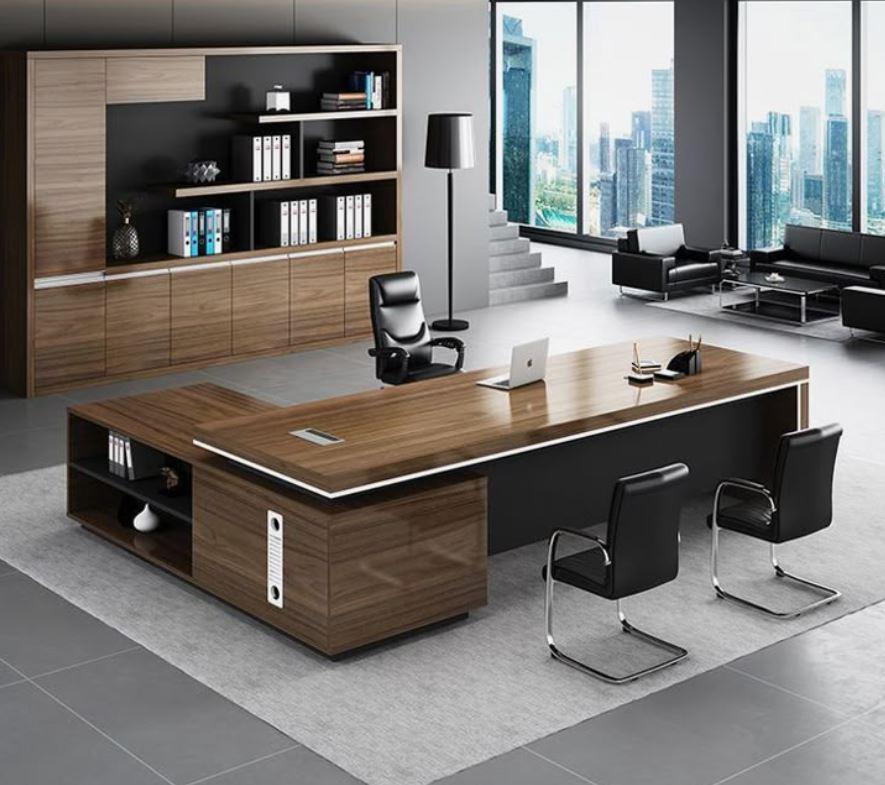Importance of the Right Office Table in Today’s Workspaces

In the modern world of work, the design and functionality of office furniture have evolved drastically. At the heart of every efficient workplace lies one of the most crucial pieces of furniture: the office table. Whether you are working from a corporate office, a home-based setup, or a co-working space, your choice of office table can significantly influence your productivity, comfort, and overall work experience. As trends in work culture change and companies move toward more flexible layouts, the demand for smart, space-efficient furniture like the free standing table is also on the rise.
Gone are the days when office tables were rigid and purely functional. Today, organizations are investing in ergonomic, stylish, and highly adaptive tables that complement the evolving nature of work. In this blog, we’ll explore why the office table is more than just a surface to work on—it’s a foundation for success.
Why Ergonomics and Design Matter for Office Tables
One of the primary considerations when choosing an office table is ergonomics. Employees spend hours seated at their desks, and if the furniture doesn’t support a healthy posture, it can lead to fatigue, pain, and reduced productivity. Modern office tables are now designed to accommodate ergonomic needs with adjustable heights, cable management systems, and better legroom.
Moreover, design plays a big role in employee morale and brand perception. A stylish free standing table not only enhances the aesthetics of the workspace but also reflects professionalism. Whether made of hardwood, glass, or metal, the table’s design should match the office interior while meeting practical needs such as durability and storage.
Advantages of a Free Standing Table in Workspaces
The free standing table has emerged as a popular choice in both traditional and modern office settings. Unlike wall-mounted or built-in desks, a free standing table provides greater flexibility in terms of layout. You can easily rearrange your space to encourage collaboration, create breakout areas, or accommodate new employees without costly renovations.
Another advantage is mobility. Free standing tables are often lighter and come in modular designs, making them easy to move when reconfiguring office layouts. This is especially beneficial in open office plans or shared working spaces where adaptability is key. These tables also encourage a cleaner, more minimalist aesthetic, which many modern offices strive for.
Office Table Options for Different Work Environments
Choosing the right office table depends on the nature of the work being done. For instance, executive offices often require large, sturdy desks with built-in storage and a polished appearance, while creative spaces might benefit from collaborative free standing tables that allow teams to gather, brainstorm, and work together freely.
In home offices, where space may be limited, a compact free standing table can serve multiple purposes—working, reading, or even dining. Its flexibility makes it ideal for remote workers who need furniture that adapts to their dynamic routines. On the other hand, call centers or IT departments might prioritize multi-person desk arrangements that maximize floor space without sacrificing comfort.
Materials and Finishes That Make a Difference
When selecting an office table, materials and finishes are more than just aesthetic choices—they affect the longevity, maintenance, and overall feel of the workspace. Wood is a classic option that offers warmth and durability. Laminate and metal finishes are known for their resilience and ease of cleaning, making them suitable for high-traffic work environments.
Glass-topped free standing tables bring a modern, elegant touch to offices and are often seen in meeting rooms or executive areas. However, they may require more frequent cleaning and might not be suitable for all types of work. Eco-friendly and sustainable materials are also gaining popularity as companies become more environmentally conscious in their operations.
Enhancing Productivity Through Office Table Features
Productivity is directly linked to how well your workspace supports your tasks. Features like built-in drawers, cable trays, adjustable legs, and power outlets can elevate a standard office table into a multifunctional workstation. Employees who can keep their desks organized and clutter-free often report higher job satisfaction and improved focus.
The free standing table, with its open design and mobility, also allows teams to easily shift between solo tasks and group activities. Many modern tables even include integrated partitions, charging stations, and modular components that help create a seamless work experience.
Making the Right Investment in Office Tables
Office furniture is a long-term investment that affects not only how your space looks but how it performs. Buying high-quality, ergonomic office tables is a cost-effective strategy in the long run. Well-designed tables reduce employee discomfort and health-related absences, which ultimately boosts company performance.
If you’re furnishing a new office or upgrading your existing setup, consider consulting with a workspace planner or interior designer. They can help you make strategic decisions based on your team’s workflow, space constraints, and budget. Whether you opt for traditional executive desks or flexible free standing tables, your furniture should support your goals.
The Future of Office Tables in Hybrid Work Models
As hybrid work becomes the new norm, the demand for flexible and adaptable furniture continues to grow. Office tables are no exception. Companies are investing in designs that can easily transition from office to home use. Height-adjustable desks, portable free standing tables, and compact workstation models are now top sellers in the market.
Moreover, many office tables now incorporate technology, with wireless charging ports, cable routing systems, and even IoT capabilities that support smart office environments. These enhancements help businesses stay agile and competitive in an ever-changing world.
Conclusion
In conclusion, choosing the right office table is essential for creating a productive, comfortable, and future-ready workspace. Whether you prefer a traditional executive desk or a modern free standing table, your decision should be guided by function, form, and flexibility. With the growing emphasis on hybrid work and employee well-being, investing in quality tables is a smart move for any organization. For those looking for reliable and stylish solutions, the brand office table offers a wide range of options tailored to meet diverse professional needs.






